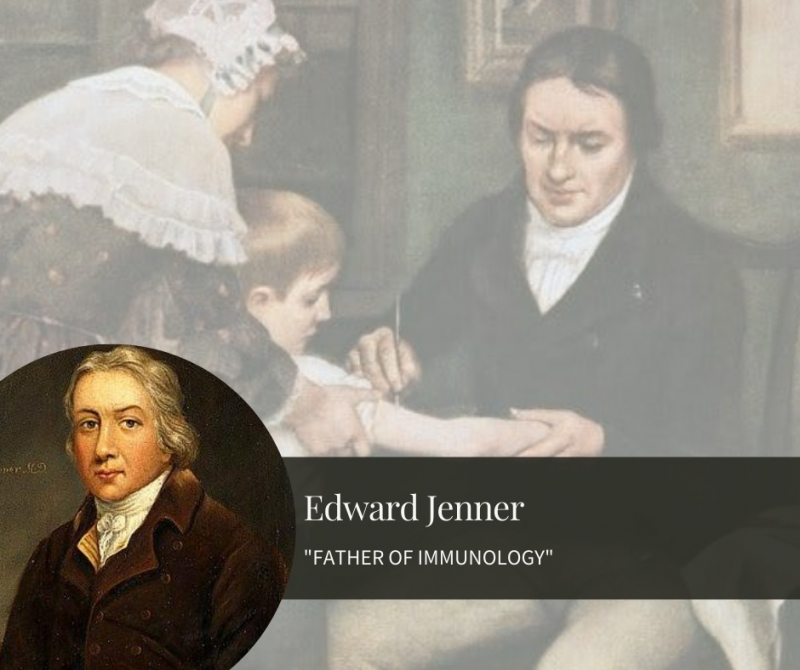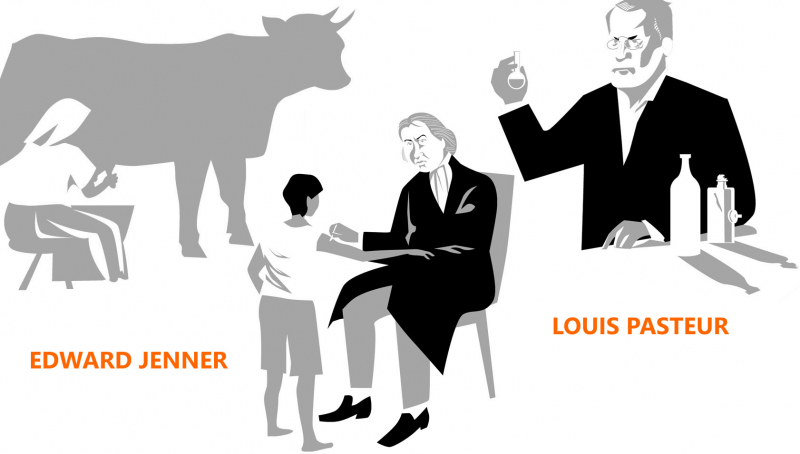Edward Jenner is called “The father of immunology”
Five researchers in England and Germany successfully tested a cowpox vaccine against smallpox more than two decades before Jenner's vaccination. During an epidemic in 1774, Dorset farmer Benjamin Jesty successfully immunized his wife and two children. However, Edward Jenner was the first to openly carry out the experiment and demonstrate that those who had received a cowpox vaccination were immune to smallpox. He also showed that cowpox protective pus may be successfully transmitted from person to person, as opposed to merely directly from cattle. More significantly, it was because of his efforts in the years that followed that the cowpox vaccination was widely used. Jenner is credited with discovering the cowpox vaccine, despite not being the first to test it.
An Act of Parliament outlawed variolation in 1840, and the cowpox vaccination became free and mandatory in 1853. The World Health Organization (WHO) began its global campaign to eliminate smallpox in 1967, and in 1980 it made the official declaration that "Smallpox is Dead!" The most dreaded illness, which had been around since ancient times, had been wiped off, fulfilling Jenner's idea. The work of Edward Jenner "saved more lives than the labor of any other human," according to estimates.
Anti-rabies and anti-anthrax vaccinations were first developed by Louis Pasteur. Edward Jenner is referred to as "the father of immunology" for his groundbreaking work on the subject. In his honor, statues have been built, and many artifacts and locations, like the lunar crater Jenner, have been given his name. Edward Jenner was ranked among the top 100 Britons in a 2002 BBC poll of the entire UK.










